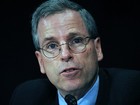The group of hackers known as Anonymous has claimed taking over the Syrian government Ministry of Defense website publishing on it a message in support for the Syrian people.
Visitors to the Syrian military department's website have been greeted with the Anonymous logo and images and links to videos of dead protesters hours after activists said on Sunday that security forces backed by tanks killed scores of civilians in the eastern city of Deir al-Zour and the central town of Hula.
 Full Story
Full Story
Embattled Yemeni President Ali Abdullah Saleh has decided not to return to Yemen due to the U.S. pressure on him, the Pan Arab daily Ashaqr al-Aqsat reported on Monday.
U.S. sources told the daily that Saleh fears to be tried if he returned to Yemen like ousted Egyptian president Hosni Mubarak.
 Full Story
Full Story
Saudi Arabia recalled its envoy to Syria in a major escalation of international pressure Monday after security forces killed more than 50 people and the regime defended its crackdown on "outlaws."
The shock move by Riyadh, the Middle East's Sunni Muslim heavyweight, followed condemnation by Pope Benedict XVI and the Arab League over the continuing bloodshed.
 Full Story
Full Story
The U.S. envoy to Syria has returned to monitor the "grotesque" crackdown there, placing himself on a collision course with Damascus, which has imposed strict constraints on diplomats.
Washington on Thursday sent Ambassador Robert Ford back to Syria, where President Bashar al-Assad's troops and tanks have stormed major cities in an effort to suppress a months-long pro-democracy revolt.
 Full Story
Full Story
Jordan said on Sunday the bloody crackdown on the opposition in Syria is "worrisome," and called for dialogue and reforms to end the crisis in the neighboring country.
"What is happening in Syria now is worrisome, unfortunate and sad," Foreign Minister Nasser Judeh told the state-run Petra news agency in an interview.
 Full Story
Full Story
Kuwait, which has called for a halt to bloodshed in Syria, said on Sunday it has no plans to expel the Syrian ambassador as demanded by MPs and protesters.
"The Syrian ambassador is here and he will stay in accordance with diplomatic agreements," foreign ministry undersecretary Khaled al-Jarallah told reporters.
 Full Story
Full Story
Rebels in the western Libyan town of Zliten were said to be low on ammunition and on the defensive on Sunday, as the regime said its forces had retaken the strategic southwest town of Bir Ghanam.
Abdul Wahab Melitan, a rebel spokesman in the port city of Misrata near Zliten, said forces loyal to strongman Moammar Gadhafi had launched an assault on rebel positions in Zliten's Souk Telat area, killing three and wounding 15.
 Full Story
Full Story
The Arab League on Sunday called on the Syrian authorities to "immediately" stop the violence that has rocked the country since mid-March, in the pan-Arab body's first official statement on the unrest.
League Secretary General Nabil al-Arabi "calls on the Syrian authorities to bring an end immediately to acts of violence and campaigns by the security forces against civilians," the statement said.
 Full Story
Full Story
Bahrain has ordered the release of two former MPs arrested in May after a crackdown on Shiite-led protests pending their trial in a civilian court, state news agency BNA said on Sunday.
The public prosecutor has decided to "release several detainees ... until the (civilian) court looks into their cases," including "two former MPs and a lawyer," BNA reported.
 Full Story
Full Story
Syrian forces backed by tanks killed at least 57 people on Sunday in the regions of Deir Ezzor, Homs and Idlib, activists said, as President Bashar al-Assad defended what he termed the state's duty to crack down on "outlaws" despite mounting condemnation.
Security forces killed at least 38 civilians in the city of Deir Ezzor alone, activists said, and at least seven more died in Hula, a town in Homs province, in a separate assault with tanks.
 Full Story
Full Story



